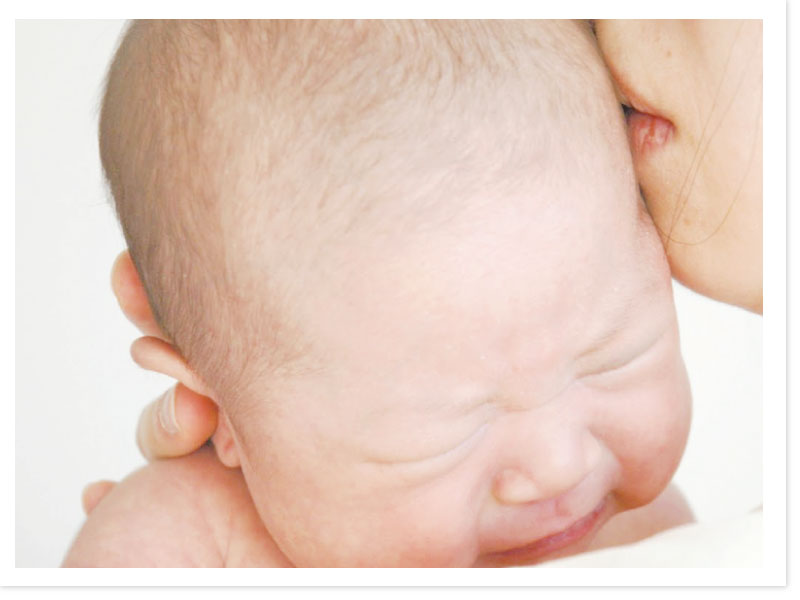The flu can be especially dangerous to young babies. It is caused by the influenza virus. Children under two years old who become infected are more likely to wind up in the hospital compared to older children.
Babies with the flu can become really fussy and irritable. They would appear tired and cranky. They may not be able to eat or feed well and possess symptoms remarkably similar to those of a cold or other viral illness.
If your baby has the following symptoms, there’s a good chance that it’s the flu:
- The sudden onset of fever, typically 101 degrees Fahrenheit (38.3 degrees Celsius) or higher
- Fatigue and chills, followed by respiratory symptoms such as a runny nose and a dry sounding cough
- Irritable with poor appetite
- Sore throat, and swollen glands
- Abdominal pain, diarrhea, and vomiting
Note: If you notice that your baby has a cough or congestion before the fever, it’s more likely your baby has a cold.
How do babies get the flu?
The flu viruses (influenza A and influenza B) are potent pathogens. In close quarters with poor air circulation, they tend to spread and infect others easily through the air. A baby who is near a person with flu will likely breathe in infected droplets dispersed by the afore-mentioned sick person if that person were to cough or sneeze. A person with the flu is contagious for about a day before symptoms begin and for about five days after.
Because of the nature of how the flu proliferates, it spreads easily through schools, daycare centers, playgroups, and within families. A baby will usually get sick from one to four days after exposure.
How can I help my baby feel better?
The best treatment for the flu is to make sure your baby rest and be given plenty of fluids. Nurse or feed your baby often. For older babies, soups or broths may help ease their congestion as well.
Ask your doctor about pain relievers for children such as children’s acetaminophen. Note: Aspirin is not recommended for children unless a doctor approves it. It could trigger Reye’s syndrome, a rare but life-threatening condition.
A word on antibiotics: Before you urge your doctor for them do know that antibiotics kill bacteria and not viruses, so they will not help. Antibiotics will only be needed if your baby develops a secondary bacterial infection such as pneumonia, an ear infection, or bronchitis as a result of having the flu.
When to call your baby’s doctor:
- If your baby is less than three months old and has a fever of 100.4 degrees F (38 degrees C) or higher. Infants this young are vulnerable to serious diseases, so a fever should never be taken lightlyIf your baby is between three and six months old and has a fever of 101 degrees F (38.3 degrees C) or higher
- If your baby is six months or older and has a fever of 103 degrees F (39.4 degrees C) or higher
- If your baby or toddler develops a fever that lasts longer than three days
- If your baby or toddler develops a cough that does not improve after a week
- If your child is HIV-positive or has a chronic illness such as cancer, sickle-cell anemia; diabetes; or heart, lung, or kidney disease and develops signs of coming down with a flu
- If your child has rheumatoid arthritis or Kawasaki disease, and develops signs of the flu
- If your baby shows signs of having an earache, (like pulling on the ear and fussing/crying)
- If your baby starts wheezing or seem to have trouble breathing
- If your baby becomes sick again soon after bouncing back from the flu. This may indicate the presence of a secondary infection that needs to be treated
- If your baby shows signs of dehydration
